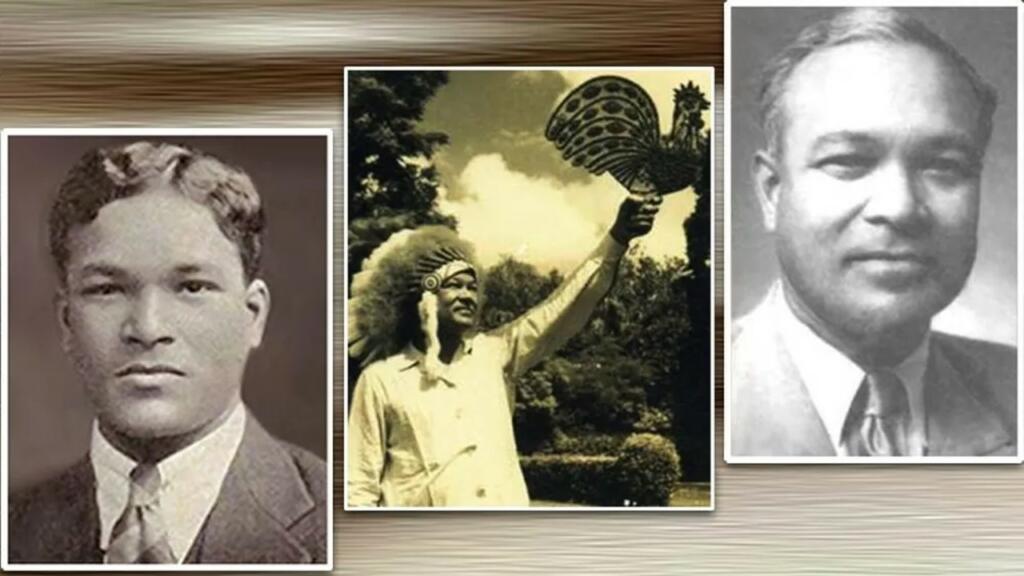Jaipal Singh Munda biography: “You cannot teach democracy to tribals; rather, equality and co-existence have to be learned from them.” These were the words of a person who did not compromise with his views from the field of sports to the arena of politics. In this article, let’s meet Jaipal Singh Munda and see how he transitioned from the hockey field to politics. So, let’s begin without any delay.
From Forest to Oxford
Born on January 3, 1903, Jaipal Singh Munda’s real name was Ishwardas Jaipal Singh, whom the tribals of Jharkhand respectfully called ‘Marang Gomke’ (supreme leader/leader). Jharkhand’s dream of a separate state may have been partially fulfilled 30 years after his death, but the tribal philosophy and politics that Jaipal Singh Munda established in Indian politics and society through his statements, organizational skills, and strategies during the Jharkhand movement was unparalleled in history and politics.
Jaipal, once a cowherd, earned his name for education at St. John’s College, Oxford, with the help of missionaries. He was exceptionally talented, and apart from studies, he earned a lot of fame in sports, particularly hockey, and debate. He was also awarded the Oxford Blue, becoming the first Indian to receive this honor for sports.
Also read: Absolute free pass by CM Soren to alienate tribals from mainstream
When He Led India in the Amsterdam Olympics
So how did Jaipal get attracted to the Olympics? Jaipal, skilled in hockey, was selected in the Indian Civil Service (ICS). His training at the ICS bore fruit when he went to the Netherlands as the captain of the Indian team that won the first gold medal in Olympic hockey in 1928 in Amsterdam. In the same Amsterdam Olympics, another player made his debut, known in history by the name of Major Dhyan Chand, the “Wizard of Hockey.”
Jaipal was a great soldier of India’s national game, who won India its first gold medal under his captaincy in the 1928 Amsterdam Olympics. Jaipal Munda’s team not only won that Olympics but also did not allow any team to score even a single goal in five matches. With this victory, Jaipal Singh Munda, who came into the limelight all over the world, was saddened by the attitude of the British, so he left the sport and turned to politics. On his return, he was asked to undergo one year of ICS training again, which he refused to do.
Also read: UGC takes charge of PM Modi’s idea of mainstreaming tribal languages
There Was a Lot of Support for Connecting the Northeast with India
By 1938, Jaipal had become a pioneer of tribal rights. When India became independent, he also became a member of the Constituent Assembly. When the Constitution of India was being prepared, Jaipal Singh Munda had said, “We tribals do not discriminate in the name of caste, color, richness, poverty or religion. You should learn democracy from us. We don’t need to learn from anyone.” The result of his same thinking is that today in the country, tribals have got all kinds of rights, reservation in jobs and representation, rights related to forest land, etc.
Also read: What may be a cool design on our pillows for us might be a Tribal God and we ought to respect it
When the leaders of the country started understanding the pain and suffering of the tribal society, it was the result of Jaipal Singh Munda’s initiative. It was due to his efforts that 400 tribal groups were given the status of Scheduled Tribes. Adivasi Mahasabha was founded by Jaipal Singh Munda in the year 1938, 12 years before the implementation of the Indian Constitution.
But Jaipal Singh Munda was also a fierce nationalist. When the demand arose for the separation of Nagaland from India, he stood up against it and devoted himself to
Support TFI:
Support us to strengthen the ‘Right’ ideology of cultural nationalism by purchasing the best quality garments from TFI-STORE.COM
